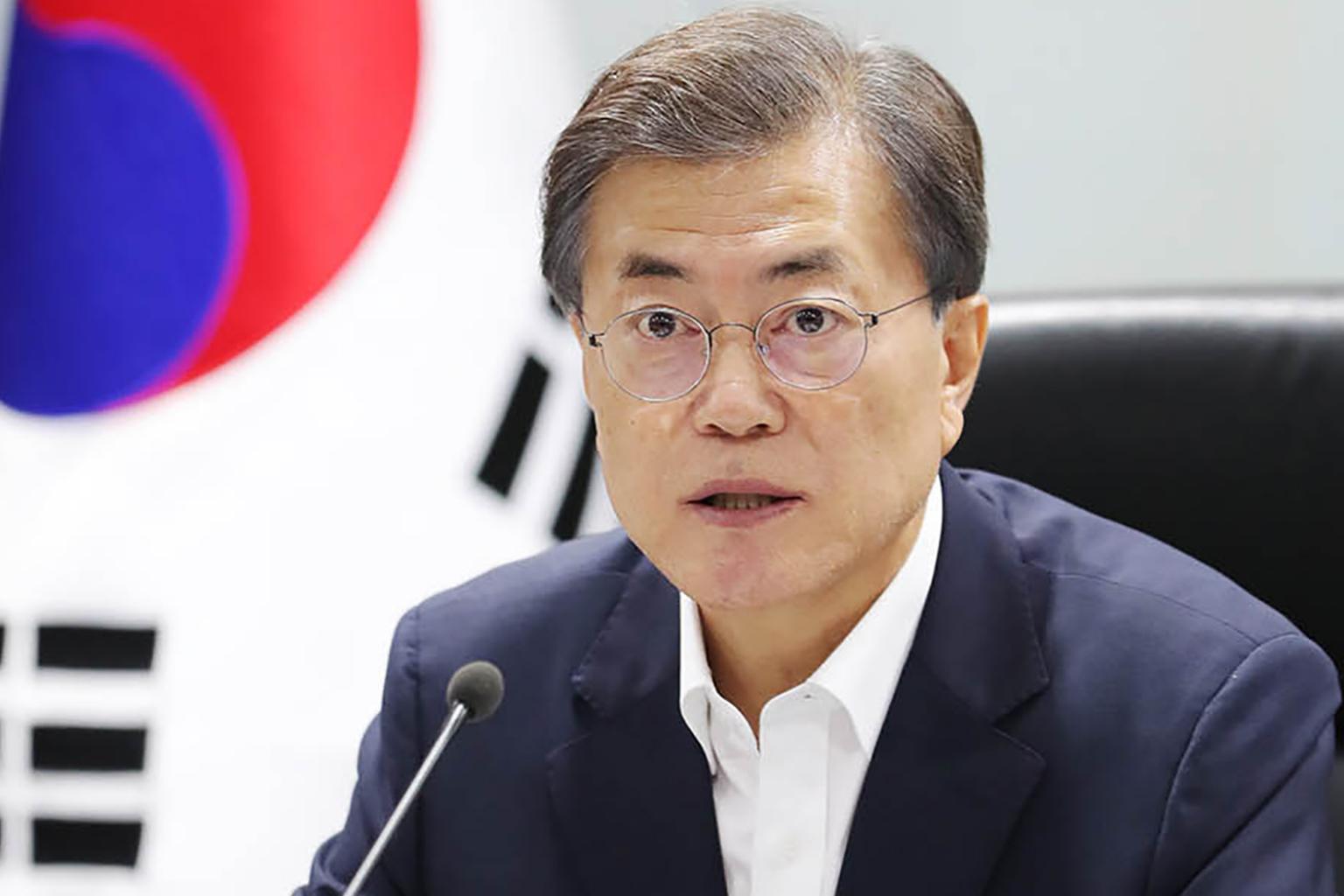Populism all over: The Korea Herald
Sign up now: Get insights on Asia's fast-moving developments

In this handout from the Blue House taken on July 29, 2017, South Korean President Moon Jae In presides over an emergency meeting with National Security Council members at the presidential Blue House.
PHOTO: AFP
Follow topic:
In its editorial on 30 July, the paper expresses concern over both the ruling and opposition camps resorting to populist policies.
SEOUL (THE KOREA HERALD/ASIA NEWS NETWORK) - Granted, it is hard to separate politicians from populism. Nevertheless, what Korean politicians - from President Moon Jae-in to opposition leaders - do these days offers ample cause for concern.
The Moon administration and ruling party - taking advantage of or aiming to further bolster their high-running popularity - is rolling out one populist policy after another.
Indeed, one of Moon's first public appearances since becoming president was related to his election pledge to turn all contingent workers at public enterprises and entities into regular workers.
Then he made the bombshell announcement of weaning the nation from nuclear power, triggering fierce political and public protests.
The Moon administration also raised the legal hourly minimum wage for next year by the largest-ever margin in line with the president's promise to elevate it to 10,000 won (S$12) by 2020.
On top of these, an immense debt write-off program which officials say may benefit as many as 400,000 people is also in the making.
All these policy programs are costly and have many ramifications, so they need public consensus or proper debate at least, but the Moon administration - riding the wave of the high approval ratings - is pushing them in a unilateral manner. It is not much to say that the Moon administration can be identified with populism and unilateralism.
Now the Cabinet stands on the forefront of the Moon government's populist drive. The fact that about half of the 18 Cabinet members are politicians - people whose top priority is always getting votes - tell you that the Moon administration is well armed to serve as a populist machine.
One good example is the move to raise taxes for corporations and individuals in the highest income bracket.
Interior Minister Kim Boo-kyum - speaking about the need to find financial resources for major policy and welfare programs - called on the government to be "honest and frank" and tell the people that tax hikes would be inevitable. This laid the basis for Moon to reverse his position that he would not raise taxes.
As if choreographed, ruling party leader Choo Mi-ae did not waste time following up with specific tax hike proposals. The party's final position calls for raising income taxes for companies whose yearly operating profit exceeds 200 billion won and individuals who earn more than 500 million won a year.
This is a typical populist approach. Most of all, any such tax hike targeting only the most profitable corporations and high-income individuals receives strong support from the general populace.
At the same time, Moon and his aides clearly rule out the possibility of similar tax hikes for the rest of the tax base. Put simply, the government is trying to buy the hearts of the general populace by targeting relatively small numbers of corporations and individuals.
When it comes to such populist tactics, the opposition is determined not to be outplayed by the ruling camp. You need look no further than the move of Hong Joon-pyo, the leader of the conservative Liberty Korea Party who lost the presidential election to Moon, to lower the tobacco and car fuel taxes.
Lowering tobacco prices was one of Hong's election pledges, but that does not justify using an issue that could heavily affect national health for the opposition party's populist tactic.
Tobacco taxes were raised in 2015 when the Liberty Korea Party, then the Saenuri Party, was the ruling party. It said raising cigarette prices was one of the most effective means to curb smoking.
To be fair, the tobacco price hike - from 2,000 won per pack to 4,500 won - is not contributing as much to lower smoking rates as had been expected, but the fact is that Korean tobacco prices are still low by international standards.
It is simply wrong for Hong to try to run counter to the global trend to restrain sales of tobacco products. It is more unacceptable if he is trying to reach out to smokers - and auto drivers as well - to help his party win back popular support through such shallow populist polices.

